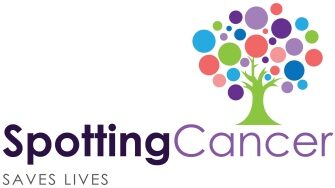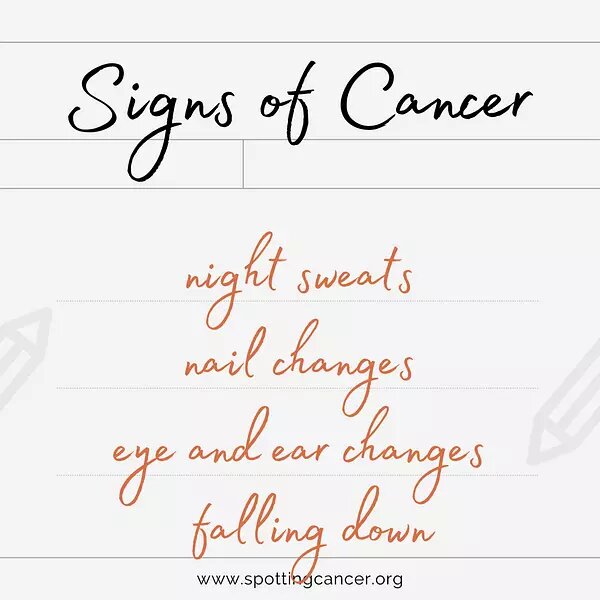Early Uncommon Cancer Signs and Symptoms
When many people think of cancer, they assume they will know how to spot it. It is true that there are many common signs of cancer that are easier to notice and attribute that something is wrong, after all. Weight Loss, irregular bleeding, tumors and lumps, or intense pain are all more likely to prompt a trip to the doctor’s office or even the emergency room. However, there are other less intense symptoms that are easy to ignore or contribute to other causes.
It is important to understand that there are several uncommon, maybe even surprising, signs of cancer that should be discussed with your doctor. When you let symptoms go unmonitored, you could prevent doctors from catching serious problems. While these less common symptoms might very well be caused by something else, it is best to be proactive. No matter the underlying causes of your health changes, addressing the issues sooner is always better. Early detection is key to taking control of your health and possibly saving your life.
Download Our Spot and Survive Guides Free Now!
Learn the signs to potentially save yours and your family’s life.
Night Sweats
Do you find your clothes and sheets drenched with sweat upon waking? Night sweats can be caused by environmental factors like an unusually warm room, or they might be a side effect of medication. They are also commonly associated with hormonal changes like pregnancy or menopause. However, night sweats are also associated with a variety of other health problems like hypoglycemia and hypothyroidism, as well as being an early sign of cancer. Though it is not clear why it is more commonly associated with certain types of cancers, addressing your night sweats could help detect cancer early enough to make a difference.
Continuous Itching
If you experience intense itching, it is important to consider possible causes. If you have ruled out allergies and eczema, and the itching is not relieved with antihistamines, dig further. If you have itching after a hot bath or shower, or you notice uncontrollable itching at night, speak to your doctor. Itching has been associated with various types of cancers, including itchy moles. Instead of ignoring this uncomfortable symptom, hoping it will get better, take the time to rule out health problems.
Changes in Nails
Your fingernails and toenails receive nutrients directly from your body, so they are a window into your health. If you notice changes in how your nails feel or look, or even the tissue around your nails, it could be a sign of an underlying health problem. Some common changes in nails that are associated with cancer include lines, painful nail beds, dry or cracked skin in the cuticles, discoloration, pitted nails, or ridges or bumps under a nail. Even if your nails sometimes take a hit due to working with your hands, unusual changes should be brought to the attention of your doctor.
Chronic Fatigue
Many adults brush off chronic fatigue and tiredness. It is easy to say you are overworked or stressed, and those are real causes of fatigue. However, chronic fatigue, especially if it gets worse and is accompanied by weakness, is often a sign of illness or disease. Cancer uses your body’s nutrients, which quickly depletes your energy levels. If you think you are getting enough sleep, but still feel exhausted and/or weak, need to take naps regularly, or if you have trouble sleeping, speak to your doctor. Also, let them know if you have muscle weakness, get breathless after routine tasks, or find it hard to concentrate on simple activities.
Eye and Ear Changes
Your eyes and ears are vital to receiving input from the world about you, but much like your nails, they can tell you a lot about the internal workings of your body.
- Ears– Some of the most common changes to your ears associated with cancer include scaly patches, white lumps under the skin, discharge, hearing loss, earaches, or ringing in the ears.
- Eyes– Common problems with your eyes that should be investigated include floaters, changes to the pupil, double vision, sudden pain, bulging of the eye or growths on the eyelid, shadows, wiggly lines or other changes to your vision.
Low Grade Fever
If you are experiencing a persistent low-grade of 100.4ºF (38ºC) or higher for more than two weeks, you should consider that it could be something other than a typical virus. Checking in with your doctor is a simple, but very effective way to detect any potential problems.
Falling Down
Unexplained falls are a warning sign that something is affecting your balance and mobility. This is a symptom that might be overlooked in aging individuals, but it is important for anyone, regardless of age, to pay attention to. If you find yourself tripping frequently, losing your balance, or experiencing dizziness or fainting, it is vital that you speak to your doctor.
Swallowing and Hoarseness
Pain in the throat, tongue, and jaw, as well as pain when swallowing, should all be discussed with your doctor. In addition, voice and pitch changes might be expected when going through puberty, but it can be a sign of illness or injury in adults. Any unexpected pain in the throat or mouth, or changes to the voice that lasts for more than two weeks, should be discussed with your doctor.
Conclusion
Remember, early detection of any health problem is important, so it is vital that you do not ignore warning signs or procrastinate about scheduling your next doctor’s appointment. This is not an exhaustive list, and it is important to be familiar with and recognize the various signs and symptoms of cancer. Your attentiveness to your body can help your doctor run the right tests and get an early diagnosis. While it is true that some symptoms could be associated with other health problems, it is important not to dismiss the possibility of cancer. It is never a bad idea to be proactive, download our signs and symptoms guide, and schedule a health and wellness screening. Your doctor can help you make important decisions and lifestyle changes to improve your health and well-being, even if you do not have a cancer diagnosis. If you do end up with one, early detection can save your life.

